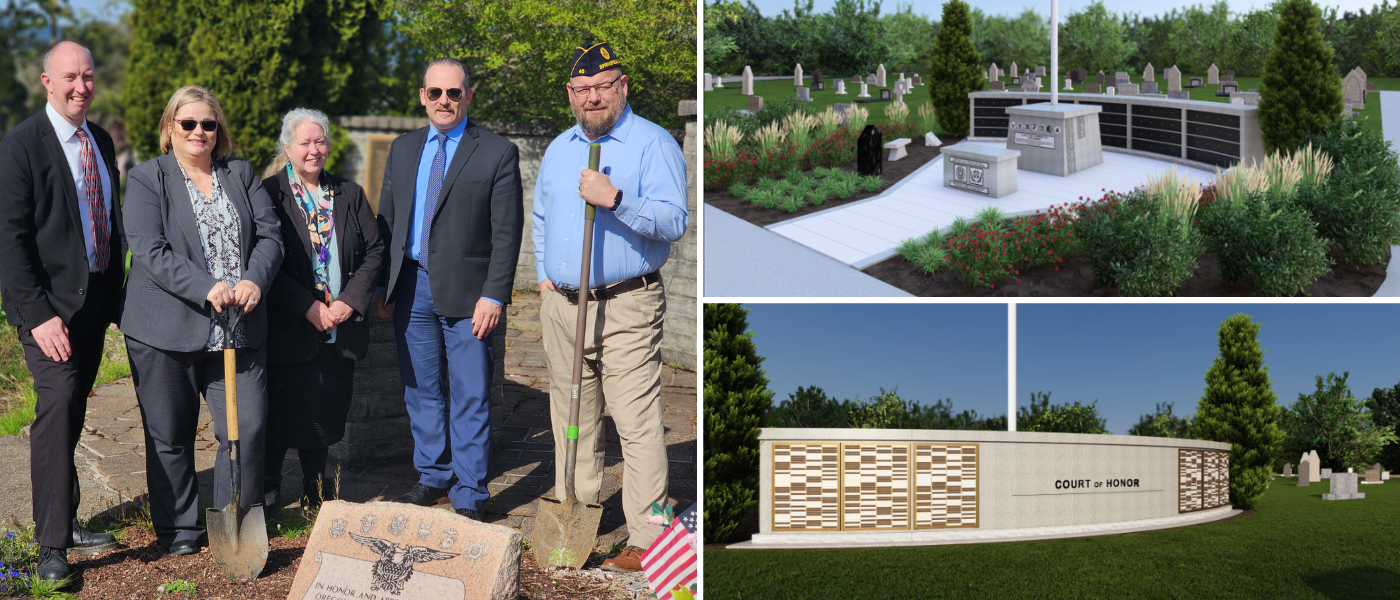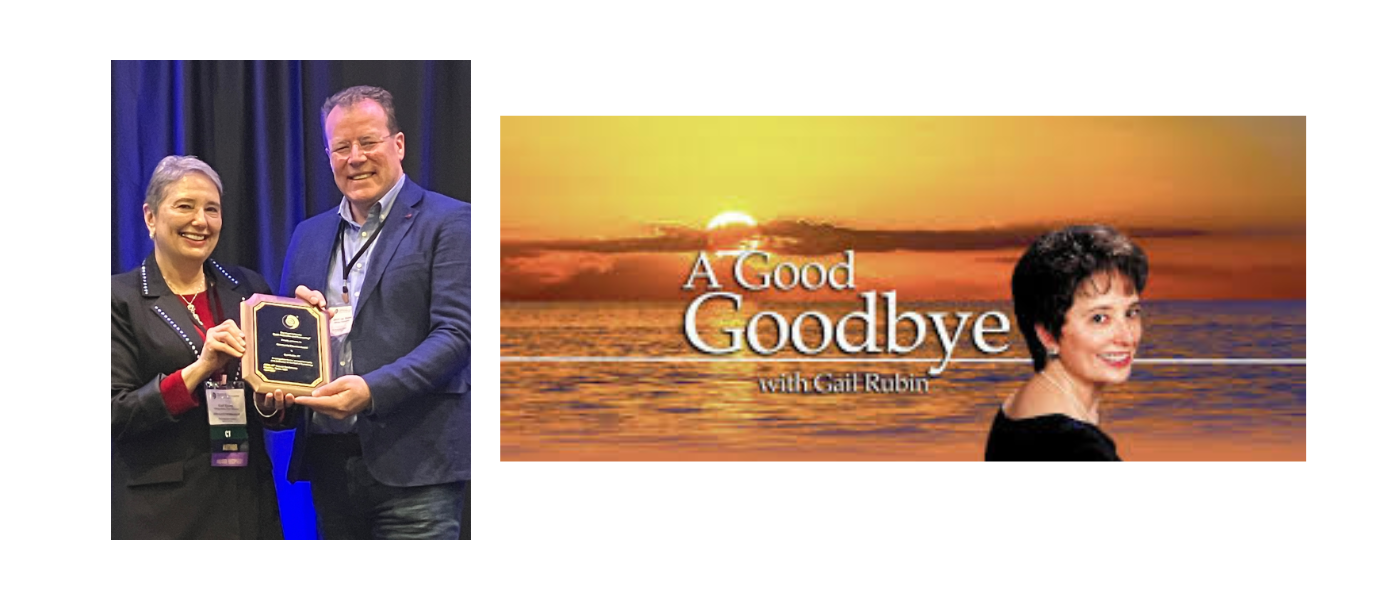Grief Stricken Mom Comforted by Funeral Director’s Compassionate Gift
 The Thanksgiving day NFL pregame show ran a powerful and emotional segment on the four people who received organs from former Cincinnati Bengals wide receiver Chris Henry who died last December in Charlotte. Carolyn Glaspy, Henry’s mother, met the four recipients of her son’s organs along with their families. She carried a woven Tribute Blanket that bore her son’s face. The blanket was given to her as a gift over a year ago by J.C. Battle & Son Funeral Home. She carries it everywhere for grief support. Please take one minute to watch the video and witness what helps families after the services are over.
The Thanksgiving day NFL pregame show ran a powerful and emotional segment on the four people who received organs from former Cincinnati Bengals wide receiver Chris Henry who died last December in Charlotte. Carolyn Glaspy, Henry’s mother, met the four recipients of her son’s organs along with their families. She carried a woven Tribute Blanket that bore her son’s face. The blanket was given to her as a gift over a year ago by J.C. Battle & Son Funeral Home. She carries it everywhere for grief support. Please take one minute to watch the video and witness what helps families after the services are over.
Below is a video showing segments of the video done by the NFL. The video does a great job showcasing how a gifted tribute blanket can continue to provide comfort for the family long after the service is over.
Below is an article that was published in the LA Times about the Chris Henry story.
Lost Life Revives Four Others
Article By: David Zucchino, Los Angeles Times
NFL wide receiver Chris Henry, who died last year at 26, left his legacy through the donation of his organs. His mother made the decision, saying, ‘They will know he didn’t just die, but he left the world a better place by giving someone else a chance at life.
Tom Elliott spoke first. For days, he had been debating what to say when he finally met the mother of the man whose death had saved his life.
Elliott, 63, had once been tethered to an oxygen tank, too weak to walk to his mailbox, as a result of lung and pulmonary diseases. Now, as he stood stiffly in a hospital conference room this month, Elliott squeezed the hand of Carolyn Glaspy.
“I’m the lung recipient,” he said finally.
Glaspy fought back tears. At the same Charlotte hospital 11 months earlier, her son, NFL wide receiver Chris Henry, 26, had been declared brain dead after being thrown from the back of a pickup.
Her decision to donate his organs would forge an irrevocable bond with four families. Now they were finally meeting face to face, an extraordinary rendezvous in the recent history of organ donations. Normally donors are anonymous, but Glaspy longed to meet the recipients whose replenished lives promised redemption for her lost son.
After Elliott came Donna Arnold, 51, a diabetic with failing kidneys who had received Henry’s kidney and pancreas.
She hugged Glaspy and said, “I’m Donna. I’m so blessed…. Thanks for giving us all another chance.”
James Benton, 61, once left bed-ridden by progressive liver disease, received Henry’s liver.
“If it wasn’t for Chris,” he told Glaspy, “I wouldn’t be standing here.”
And Brian Polk, 33, a dump truck driver whose faltering kidneys meant he would die without a transplant, received Henry’s other kidney. He embraced Glaspy in a long bear hug, his face touching hers.
Glaspy, her voice breaking, said, “If there’s anything else I can do?”
“You’ve done so much,” Arnold told her.
On the afternoon of Dec. 16, Henry had been arguing with Loleini Tonga, his fiancee and mother of their three children. Henry jumped into the back of a pickup driven by Tonga. Police, who later ruled the death an accident, said he tumbled from the truck and struck his head. Henry was rushed to Carolinas Medical Center with massive brain trauma.
When Glaspy arrived that night from her home in Cincinnati, Henry was unresponsive. She whispered softly in his ear, “Say something to Mama.”
Henry’s year-old son patted his father’s eyes and cried out, “Wake up, Daddy!”
Henry never regained consciousness. When a doctor told Glaspy that he had not survived, she fainted.
Among the hospital staff who helped revive her was Matthew Kinney, a family support coordinator for LifeShare Of The Carolinas, a nonprofit that facilitates organ donations in southwestern North Carolina.
Kinney consoled her and gave her time to “decouple,” as he put it ? to absorb Henry’s death and begin to grieve with assembled family and friends.
When Glaspy seemed ready, Kinney mentioned organ donation.
“Chris was young and healthy,” Kinney said. “He can leave a legacy, something his kids can be proud of. They will know he didn’t just die, but he left the world a better place by giving someone else a chance at life.”
Glaspy discussed it with family members. Then she thought: I’ve got to talk to Chris. She went back to where he lay, his brain function gone but his body attached to mechanical support systems.
She whispered to Chris that she knew what his answer would have been if he had been able to make a decision.
“Chris was a giver,” Glaspy recalled. “If he knew he could help someone, he would have said yes.”
Three weeks ago, Glaspy flew back to Charlotte. She knew virtually nothing about the four recipients, but had wanted to meet them almost from the moment she decided on donation. LifeShare told her they wanted to meet her too. In cases where both the organ recipients and the donor family ask to meet, according to LifeShare, the agency will reveal their identities to one another.
This was the first time LifeShare brought together multiple recipient families with a donor family. Nationally, such encounters are extremely rare but not unprecedented, said Joel Newman of the United Network for Organ Sharing.
LifeShare hoped media coverage of Henry’s mother meeting organ recipients would promote organ donation and raise awareness, said Debbie Gibbs, an agency spokeswoman.
All four recipients had heard the news about Henry’s accident just hours before they received urgent calls to rush to a hospital for possible transplant surgery. Each suspected Henry was the donor, but LifeShare did not confirm it until shortly before they gathered to meet Glaspy.
So on the morning of Nov. 6, Glaspy was sitting in a cramped hospital consultation room, trying to keep her emotions under control. For nearly a year, she had been trying to decide what to say to the four strangers who carried her son’s organs.
It was important to her to see Chris’ gifts represented in living, breathing human beings. “I wanted to look at them, see they were OK and with their families, and know that it’s real,” she said.
She hoped no one would focus on her son’s suspensions from college football and the NFL, or his arrests on marijuana, gun and drunk driving charges.
“Chris just needed a chance, and now he got that chance,” she said. “Why remember the bad things when he did so much for so many people? That’s a journey anybody would be proud to take.”
In addition to donating Henry’s organs, Glaspy also agreed to donate his corneas, improving the sight of two patients. A man in Tennessee received Henry’s heart but later died from causes unrelated to the transplant, according to LifeShare.
Since her son’s death, Glaspy has become a passionate organ donation advocate. She speaks at community groups and at her church in Cincinnati, where her husband is the pastor. She often wears a T-shirt printed with the messages “Organ and Tissue Donor” and “Rush to Your DMV.”
Henry’s death was a tragedy, Glaspy said, but it also gave new meaning and purpose to her own life.
“I lost my son, but I found four new families,” she said.
The four recipients, and their families, assembled in the hospital conference room, waiting to meet Glaspy for the first time. They were far healthier than a year earlier, though they require follow-up treatment and will take anti-rejection drugs the rest of their lives.
Polk says he feels like he’s 23 instead of 33. He jogs and swims and lifts weights, and looks like the vigorous athlete of his high school days. He’s now a vegetarian whose weight, once a life-threatening 400 pounds, is down to 280.
Arnold, a diabetic since age 16, once suffered blackouts and had barely enough energy to get out of bed. Now she’s able to travel and to volunteer at her son’s school in Mooresville, N.C.
Benton was so debilitated by liver disease that he was “just plain sick of being sick,” he said. Now he cherishes time spent with his wife and daughters in Greensboro, N.C., and has been attending drag races for the first time in years.
And Elliott, who was so ill that he once was given three to five years to live, can now walk a mile, hit golf balls, ride a bike and drive a tractor on his Virginia farm.
Glaspy strode in to meet them, her jaw set, her head held high. She walked straight to the four and embraced each of them. For a moment, no one spoke; everyone was trying not to weep. The silence was broken by a burst of applause from family members and hospital staff.
Glaspy, struggling to hold back tears, unfurled a blanket. It was printed with an image of Henry in his Cincinnati Bengals uniform. She carries it everywhere.
“This is Chris,” she said.
She began to sob. “Just to see you all standing here ? to know he lives on ? oh, thank you,” she said.
Until this moment, Glaspy told them, she had not cried over her son’s death.
“Believe it or not, this is my first tear,” she said. “I think this is my closure. This is what he wanted me to do. I can rest in peace now.
“I know people said some things about him, but he was a giver. And you all just gave him back to me. Today I got him back.”
Then it was their turn.
“My life is completely different, thanks to you,” Polk said. “You gave me a second chance…. I’m going to make the most of that second chance.”
He added, “I never have a bad day, because in a sense I’m not supposed to be here.”
Benton, his voice barely above a whisper, said, “I think about Chris every day.”
“Chris is never going away,” Glaspy told Benton, holding his hand. “He’s with us all right here, right now.”
Polk gave Glaspy flowers. Elliott handed her a letter ? written, he said, “from the heart.” Arnold’s son, Austin, 10, presented Glaspy with a jersey from his youth football team, telling her, “We know football means a lot in your life.”
Everyone posed for photos. They exchanged phone numbers and e-mail addresses, and promised to stay in touch.
Before Glaspy left, there was one more thing she needed. She asked Elliott if she could listen to her son’s lungs.
Someone found a stethoscope. Elliott inhaled deeply. The mother of the late Chris Henry put the stethoscope to his chest and heard her son’s lungs breathe, flowing cleanly, delivering life.



